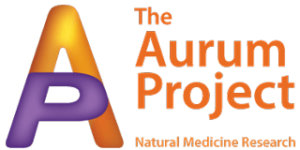Thank you Anke Zimmermann for contributing this case history to The Aurum Project blog.
Colicky and Oppositional
In November of 2021 I saw a three-year-old girl, whom I will call Cora, via Zoom. Her mother reported that Cora had developed increasingly severe behavioural issues.
From the parents perspective
Thank you to the parents for permission to write this in their words.
Ever since she was born, Cora hasn’t been the easiest baby. She was colicky for the first eight months and has always cried a lot, especially during her first two years. Over the last year we have seen her develop into a very bright, helpful, intelligent, happy young girl when everything is going her way. But as soon as we say no to something or ask her to do something that she does not want to do (get dressed, brush teeth, wash hands, etc..) she often has a major meltdown.
She refuses by saying no at first, but when we continue to ‘hold our ground’ it escalates into her flopping on the floor or she starts slapping herself on the thigh or slapping mom/dad or slapping whatever is around (cabinet, counter, etc. ) and now she is starting to throw things, sometimes on the ground, other times at us, to make an aggressive point that “she does NOT want to do that”. Then she starts screaming at the top of her lungs, until she is literally red in the face.
Strong-willed, irritable and unaffectionate

Image: For illustration purposes only
Frankly, it’s quite scary to watch and it breaks my heart to see so much anger in her over something that seems so small to us. My husband and I have often had to use our physical strength just to be able to change her diaper, get her dressed, get her in the car seat, brush her teeth, etc, because she outright refuses by bucking her body or becoming a ‘wet noodle’ and flops around, making it extremely difficult to do simple, daily tasks. Changing her diaper is a real challenge, she will kick her legs and try to get away!
The fits happen multiple times a day, almost every single day. Her personality is strong-willed and stubborn. She is very particular and needs everything to be exactly as she says/wants or there is usually a meltdown/tantrum. She is also unaffectionate, meaning most days she doesn’t like to be hugged, kissed or cuddled. She gets really rigid when we try to ‘love on her’, pushes us away, runs away and says no!
She is very independent and will tell us: “I don’t need you!”
She is doing well in preschool, is thriving and really enjoying it and has lots of friends. She is very lively and chipper but lacks co-ordination and trips over her feet running or runs into walls, regularly. She loves to chase older kids around in the park.
Medical History
From the practitioner: She received the Vit K shot when she was delivered. Mom describes that she has a 60-70% nutritious, whole foods and organic diet. She also takes a multi vitamin, along with liquid omega 3, vit D, iodine and zinc almost every day. Her mother has a history of PMS.
From the practitioner: At this point I was getting suspicious of any exposures or traumatic events during the pregnancy, labour or delivery. If a child has problems from birth usually something happened to her during or before that time. I particularly suspected ultrasound exposure as this can cause a great deal of irritability and restlessness.
From Cora's mother: We did an extra ultrasound to find out the baby’s gender at 15 weeks. She also had one at 8 weeks and two more later on, including a longer anatomy scan. I also worked with ultrasound procedures professionally every day.
From the practitioner: This just might have been the issue, ultrasounds!
But there was more: Mom also had a tuberculin test every year and had one while pregnant. And the delivery was traumatic for her.
From the mom: The birth was horrible. Cora had her hands up and it felt like a corkscrew was coming out when I gave birth to her, it was tremendously painful. I felt as if I was being shredded.

Analysis and plan
From the practitioner: There were several factors to consider in Cora’s case. I was mostly suspicious of the ultrasound exposure as I had seen similar patterns before and was very familiar with a particular proving of ultrasound a colleague of mine on Vancouver Island conducted. The repeated tuberculin testing and the traumatic delivery were also factors I considered.
Plan: Ultrasound 30C two doses a week for two weeks
Follow up 4 weeks later
From the mom: After she took the first dose of Ultrasound 30C she got sleepy and put herself down to sleep, which had never happened before. When she woke up, she was grumpy and had some extra tantrums for the next 4 days. Since then, she has been much less irritable and more affectionate and lets me hug her and stroke her hair. She also cuddled on the sofa with daddy.
The tantrums came back a bit by November 20th (after almost 3 weeks), but since then have not gotten worse again. It’s easier to get her out of tantrums and she is a little less strong-willed. We are surprised how quickly things have turned around, before she had 20 tantrums a day, now she only has 1-2 a day and they are much shorter.
She is maybe not tripping over her feet quite as much as before. When she had the initial aggravation for four days, she was falling a lot more and ran into the wall 2-3 times. This week has been much better even though we’ve been home all week.
We can get her into the car seat now without any problems; before she was fighting us every time. She is also willing to go on the potty quite willingly now.
She is sucking her thumb again; she had stopped a month ago.”
From the practitioner: Well this was a dramatic change on two weeks of a homeopathic remedy made from ultrasound!
We decided to continue her on Ultrasound 30C as needed for now.
Follow up 4 months later
Mom is still using Ultrasound 30C as needed, but Cora’s symptoms have come back, and her episodes are getting worse again.
Mom gave Ultrasound 200C twice and felt it did not do anything.
From the mom: She is screaming at us, flapping on the floor, losing it during transitions with crying and bawling for 30 minutes.
Now she is really, really clingy with her daddy. If he has a shower she stands there the whole time crying: “I don’t want you to have a shower!” If her dad is at home she says: “Come sit with me, I’m lonely! I’ll be lonely over here all by myself!”
At night she wants to be read one more book, one MORE book. She’s been crawling into our bed at night saying she is lonely.
The emotional intensity is still there, but she has been much more affectionate
She also loves the TV so much now, gets upset if it’s turned off. Same with the bubble blowing machine.
From the practitioner: I thought that this was a very interesting change, suddenly, from not wanting affection at all and being very independent Cora had turned into a little clinging vine, and feeling lonely a lot, especially with her father. She seemed to be needing a new remedy.
I was wondering if this change points to a history of possible abandonment, so I asked if the parents had felt abandoned in their lives. Cora’s mother shared that her own mother had started drinking when she was about 11. She would pass out a lot and Cora’s mom had to cook dinner and help look after her younger siblings.
Cora’s mother also shared that Cora did not want to latch after she was born.
Between her obvious symptoms of feeling abandoned and lonely, the family history of likely emotional abandonment, which may have left epigenetic or energetic imprints that may have been passed down, and the difficulty latching, I thought a milk remedy might help.
There are several milk remedies available in homeopathy, including remedies made from the milk of the cow, goats, pigs, donkeys, lion, dolphins, dogs and cats among others. These remedies share certain themes of feeling abandoned, alienated and/or isolated, issues with nursing and disruptions of the mother-child bond.
I prescribed Lac-maternum for Cora. This is a homeopathic remedy made from the milk of several nursing mothers.
Follow up 12 months later
I messaged Cora’s mother to see how she was doing.
From Cora's mom: Cora is doing so much better! This remedy has really worked. I did have to go up to the 200C right away because the 30C did not work even after two weeks of dosing. But the 200C twice a week has done the trick!
Cora is much more affectionate now. She says, “I love you”, ALL the time. She says it so much I joked with her dad and said, “maybe we are giving her too much of this new remedy because she is so lovey-dovey now!” She hugs us often and just seems happier all around.
I can’t remember the last time she had a ‘clingy’ episode with her dad and had a tantrum about him leaving the house or because he had to take a shower. She has even noticed this herself and will say things like, “I didn’t cry when Daddy left”.
She is still crawling into bed with us, but it isn’t every night. I have asked her a couple of times why she wants to climb into our bed in the middle of the night instead of sleeping in her own room and instead of saying, “because I’m lonely” like she did before the remedy, she now says things like, “because I love Mommy and Daddy” or “because it is nice and cozy in there”.
So all in all we have nothing but good things to report. I am finally ENJOYING being a parent now! Her and I are starting to understand one another’s personalities and connect on a much deeper level than we were before.
Conclusion
From the practitioner: This child, who suffered with extreme tantrums and meltdowns and was highly oppositional, improved remarkably quickly with a few doses of homeopathic ultrasound. Then another layer of being very clingy and feeling lonely arose. Perhaps this may be related to some inherited abandonment issues from the parents.
This history plus the difficulty with latching pointed to Lac-maternum, which entirely relieved her clinginess and feelings of loneliness.
We must wonder how this little girl would have done without homeopathy and how her life might have unfolded with these obstacles in her being. Homeopathy can help to remove such burdens at an early age, freeing a child to develop all of her talents, enjoy good relationships with other and experience a healthy and fulfilling life, which is all every parent wishes and hopes for!
About Anke Zimmermann
 Anke Zimmermann is a homeopathic practitioner with an international consulting practice. She lives in Sooke on beautiful Vancouver Island, Canada.
Anke Zimmermann is a homeopathic practitioner with an international consulting practice. She lives in Sooke on beautiful Vancouver Island, Canada.
Anke Zimmermann, BSc, FCAH
Classical and Modern Homeopathy
Sooke, BC, Canada
https://www.ankezimmermann.net/
References:
Summary of the Trituration of Ultrasound, Dr Roland Guenther, Vancouver Island Homeopathy
